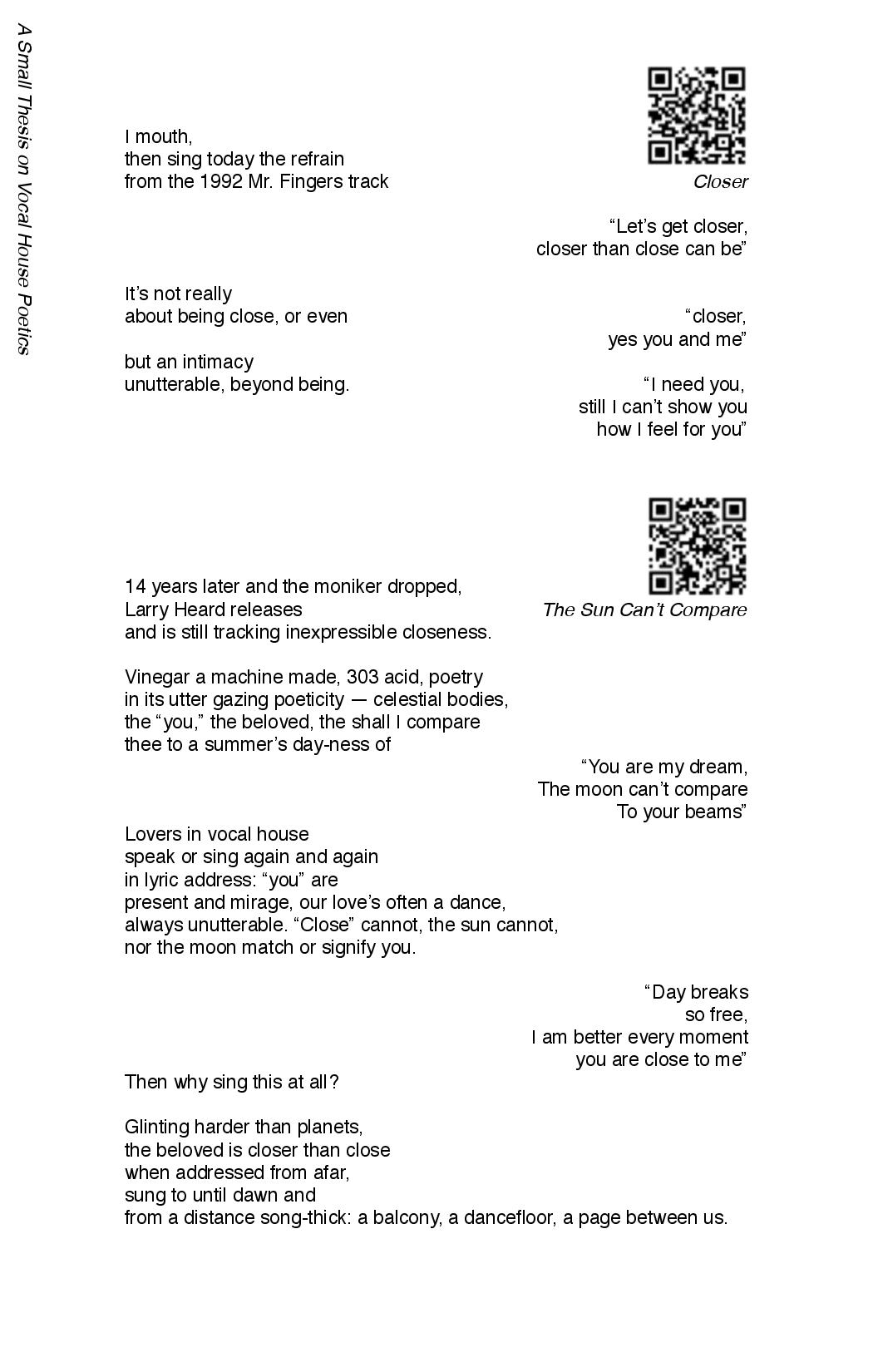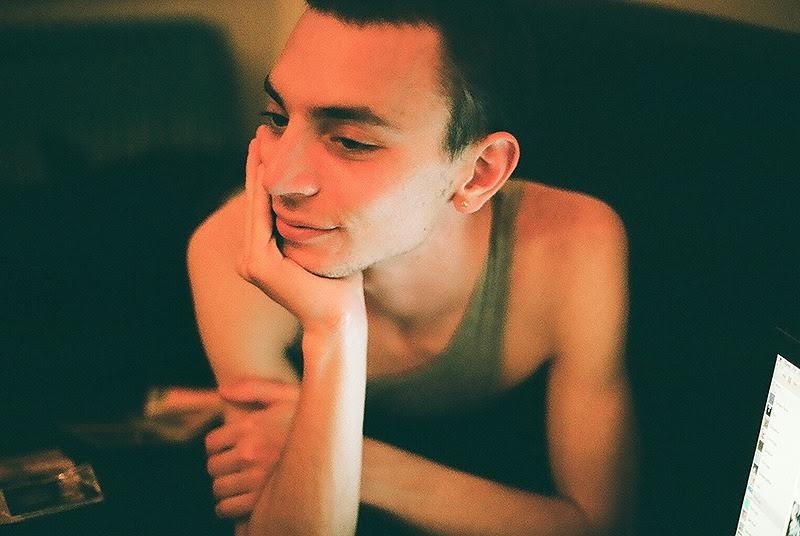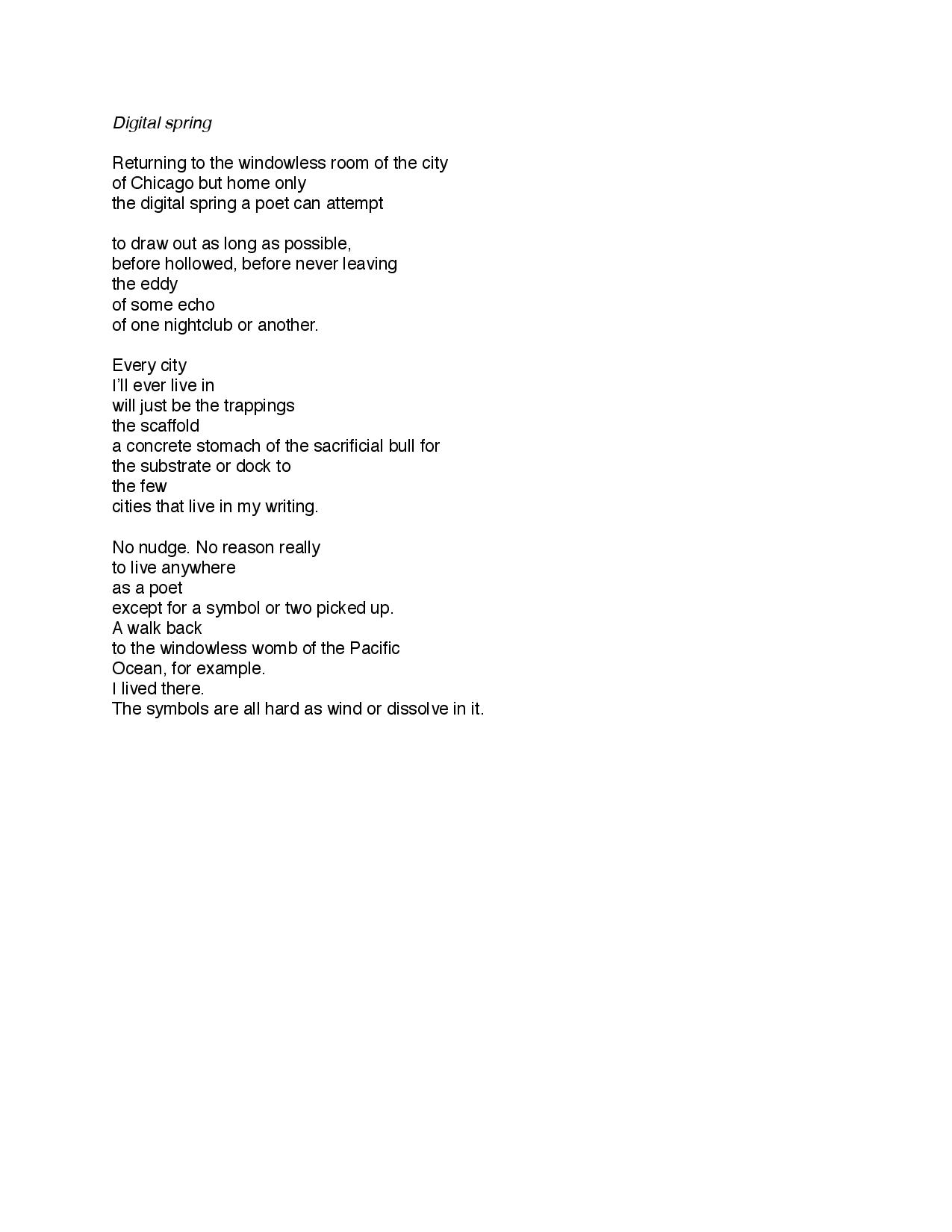Zoe Darsee nominated poet, friend and collaborator on TABLOID Nat Marcus (pictured above at reading):
Photo credit: Brittany Laurent
Nat Marcus and I met, personally, in Berlin in early February of 2014 at a bar in Mitte called Odessa. He was wearing a ball-chain choker that he had looped around his neck twice. There was a very small bell attached, this some round metal ornament accenting his long neck. I thought he was young and eager, at first. We had smoked a spliff once under the entrance of our college's library, a year before in Ohio, and in a halted attempt to flirt with his attractive friend who studied Greek, like me, I met Nat, inadvertently, a shy boy studying Latin, and did not remember him - until he wrote me on Facebook to say he was in Berlin, where I had been living as an au pair already for half a year.
In Berlin, the circumstances of our affair were strong, bowing in an out of love together, two poets in a foreign city, both of us identifying and re-claiming a word, "twink," for our respective and mutual identities.
In an email from Nat Marcus, recently - he tells me:
"trying to explain why we kept writing about that period of time we had here in Berlin. Impossible to explain really, other than, 'I think we like the idea of further mythologizing / archiving this period of time that we found very special, until the period of time and it's existence in our archival acts become indistinguishable.' Like an act of devotion, tending to, remixing, sampling and writing on those memories. But there was something about that time...maybe I never believed so strongly in discourse. It helps to have another discursive person around!"
I've never loved anyone like I love Nat, with a poet's love and admiration. At times it feels like I write through him. In reflection, there are memories indistinguishable from his influence.
“I’ve never loved anyone like I love Nat, with a poet’s love and admiration. At times it feels like I write through him. In reflection, there are memories indistinguishable from his influence. ”
A few details of our friendship, and how I remember him best: on the German burner-Nokia cell phones we recharged at the Späti when we had money, exhausting the English dictionaries in our texts to each other; meeting at the park to discuss evasive desires; reading Roland Barthes or Paul Celan on the canal; writing on the canal; considering poetry at Berghain after dancing, architecturally, as he does.
There is some kind of exalting freedom in the way his language ascends itself, how he reconsiders a word and changes it, breaks an expectation, extends surprise. He writes the way a house track can build slowly and over itself; reconstructs itself with an added sample or a shift in its beat. He writes about music, color, boys - but what does any poet write about?
In the first edition of TABLOID, Nat wrote a narrative sequence that works through both analytical and academic structures, sprawling his language out over a question of love and its return. And it is a love poem; a triumphant expression of desire made permanent by its loss. It's the combination of these analytic tendencies, something very intelligent in the way he approached a poem, the guiding feelings he does not edit. The phrases dance - on their own, for the reader, whose distance is also felt.
Romanticism betrays the poet to the beloved, or being in love is a poem. I had never met anyone who wrote the way I wanted to, and after meeting Nat I was made more open to reading the poems of my contemporaries. He is the best dancer I know, with a unique and emblematic taste in music. His poetry is dancing - I can't express this enough - there is an aesthetic quality to his language that is at once visual and textual.
It's only natural that his art would extend, now, to performance.
Nat Marcus and his work (photo credit for image of Nat - George Nebieridze)
Search for areas of interest here (e.g. video, photography...)



